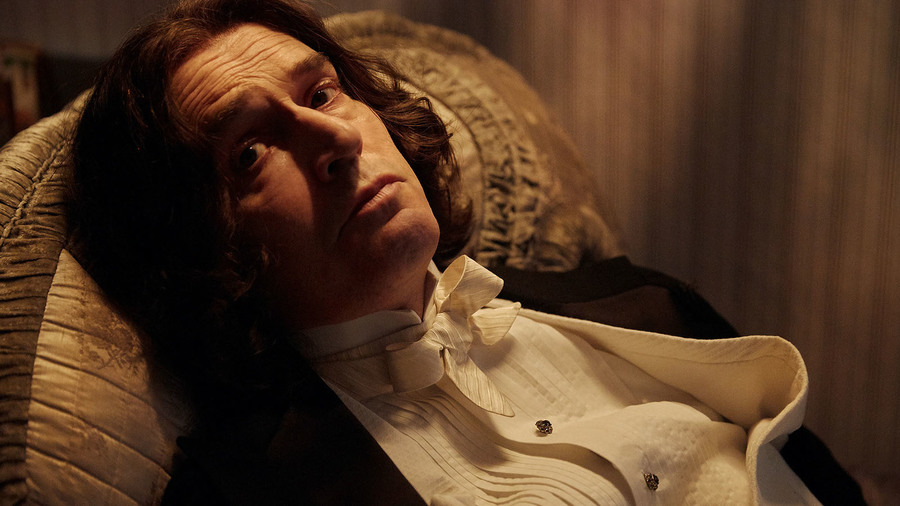
“It is a part he was born to play, and he does it with exactly the right kind of poignantly ruined magnificence,” begins the Guardian’s Peter Bradshaw. “Rupert Everett has written, directed and starred in this gripping drama about Oscar Wilde’s final years: his disgraced exile-agony in Naples and Paris on being released from prison after the conviction for ‘gross indecency.’ This was the result of his indiscreet affair with Lord Alfred ‘Bosie’ Douglas, whose enraged, reactionary father, the Marquess of Queensberry, had provoked Wilde’s catastrophic libel action following an accusation of his ‘posing as a somdomite.’ . . . Over the closing credits—like The Imitation Game, about Alan Turing—it gives us the infuriating information that its subject has been posthumously ‘pardoned’ by the British authorities. It’s Wilde (and Turing) who should be doing the pardoning.”
Variety’s Guy Lodge notes that the “out-and-proud Brit established his affinity for Wilde’s limber, witty language in Oliver Parker’s springy screen adaptations of An Ideal Husband and The Importance of Being Earnest, before getting more seriously into the skin of the Irish literary giant for David Hare’s biographical play The Judas Kiss . . . As a final, permanent showcase for a role Everett was born to play, then, The Happy Prince does the job. For all its passion-project hallmarks, however, it makes a shakier case for him being the filmmaker to bring it to screen.”
“The Happy Prince generates only faltering dramatic momentum and a shortage of pathos,” writes David Rooney in the Hollywood Reporter. “It’s telling that the film’s most moving moments come from the limited screen time of the emotionally incandescent Emily Watson as Wilde’s estranged wife Constance. Her conflicted but enduring affections for her flamboyant husband, and his separation from their two boys, prove more stirring than his fatal attraction to Lord Alfred Douglas (Colin Morgan), the self-absorbed, epicene beauty.”
“This is a new treatment of Wilde,” writes Fionnuala Halligan in Screen, where Matt Mueller interviews Everett: “no Stephen Fry-style floppy-haired hagiography with Oscar dropping lilies and epigrams as he mooches towards death. Here, ravaged and dissolute, Wilde tumbles headlong into his downfall, dying destitute in Saint-Germain-des-Prés at the age of forty-six having ripped his life apart heedlessly, determinedly, and poignantly in a series of rash decisions. The Happy Prince sees Wilde alone and drunk in Paris, cadging money from former friends, almost willing himself to death.”
“Diehard Wilde fans will find some intriguing observations lurking in this snapshot of the writer’s final moments—his capacity as orator, wonderfully realized by Everett, explains much about his prose—but redundancy sets in,” finds IndieWire’s Eric Kohn.
For news and items of interest throughout the day, every day, follow @CriterionDaily.
from The Criterion Current http://ift.tt/2n0IQED
Nessun commento:
Posta un commento